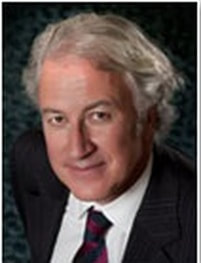Tips from Mediators
A party in a mediation gives information to the mediator "in confidence." The mediator believes it would be of substantial value in helping resolve the matter if it were made known to the other side. What should the mediator do? If the lawyers are novices, does this change your opinion?
Percy Ostroff
|
How confidential information will be treated should be made clear by the mediator before the mediation starts. I inform the parties of the "default" position on confidentiality at the outset. For me, it is, “Everything you tell me in caucus will be kept confidential, unless you instruct me otherwise.”
The ADR Institute for Canada has a model code for mediators that sets out a number of obligations about confidentiality. These include instructions that: |
- the mediator inform the parties about the confidential nature of the mediation
- the mediator discuss the nature of any private, break-out or caucus sessions with all parties, prior to the start of such sessions, and must advise the parties of any limits to confidentiality of the information disclosed in those private sessions.
If the information would have to be disclosed at some point, there may not be as good a reason for trying to keep it confidential from the other side during the mediation. Once I know the reasons for the requested confidentiality, I might advise the party why I believe that disclosure is valuable, and let them and their counsel consider whether or not they still wish to maintain the confidentiality.
Ultimately it is the party’s choice to disclose or to withhold the information. However, that choice should be based on the client being fully informed about the nature, extent and limits of the confidentiality, and about the potential benefits of disclosure
Kevin Mullington
|
If, as the mediator, I am provided information in confidence by one party that I believe will help get the matter resolved if shared with the other party, I will ask permission to disclose it. I will explain to the first party and the lawyer why I think it would be helpful. This will enable them to make an educated decision on whether or not to disclose that information.
Ultimately, it is the client's decision (with the assistance of counsel). This goes without saying whether the counsel is senior or novice. |
Rick Brooks
|
I believe the cornerstone of the mediation process is confidentiality. I always explain to the parties during the initial portion of the mediation that nothing that is said can be repeated later and that no one can be cross-examined in court on what they say at the mediation. Therefore, anything given to me in confidence must remain “in confidence” until the party agrees otherwise. If I believe that the information would be of assistance in resolving the matter, I will express that view to counsel and to the client, but ultimately it is their decision.
|
If counsel believes the matter will not settle and he or she would prefer to keep this information private until examinations for discovery or trial, then I can understand why tactically they would choose to maintain their position.
Under no circumstances should the mediator push counsel into allowing the information to be shared, especially if counsel is less experienced.
Under no circumstances should the mediator push counsel into allowing the information to be shared, especially if counsel is less experienced.
Steven C. Gaon, B.A., J.D., C. Med.
|
This is one of the simplest issues for a mediator. If a party or a lawyer for a party tells the mediator something in confidence (typically in caucus), the mediator must obtain permission to divulge the information to the other side; otherwise the mediator is bound to keep the information confidential. It does not matter whether the lawyers are novices or have 30 years of experience; nor does it matter that revealing the information would help get a deal done.
|
This is something I usually address in my opening remarks at the mediation. I will tell the parties and their lawyers that what they tell me in caucus I will keep confidential unless I am told otherwise.
Of course there are very rare exceptions to this rule, e.g., in cases where someone’s life or safety is threatened. The purpose of having such a stringent rule is to encourage parties and lawyers to be as candid as possible in caucus and let their guards down. This enables the mediator to do a better job facilitating a settlement.
Of course there are very rare exceptions to this rule, e.g., in cases where someone’s life or safety is threatened. The purpose of having such a stringent rule is to encourage parties and lawyers to be as candid as possible in caucus and let their guards down. This enables the mediator to do a better job facilitating a settlement.




